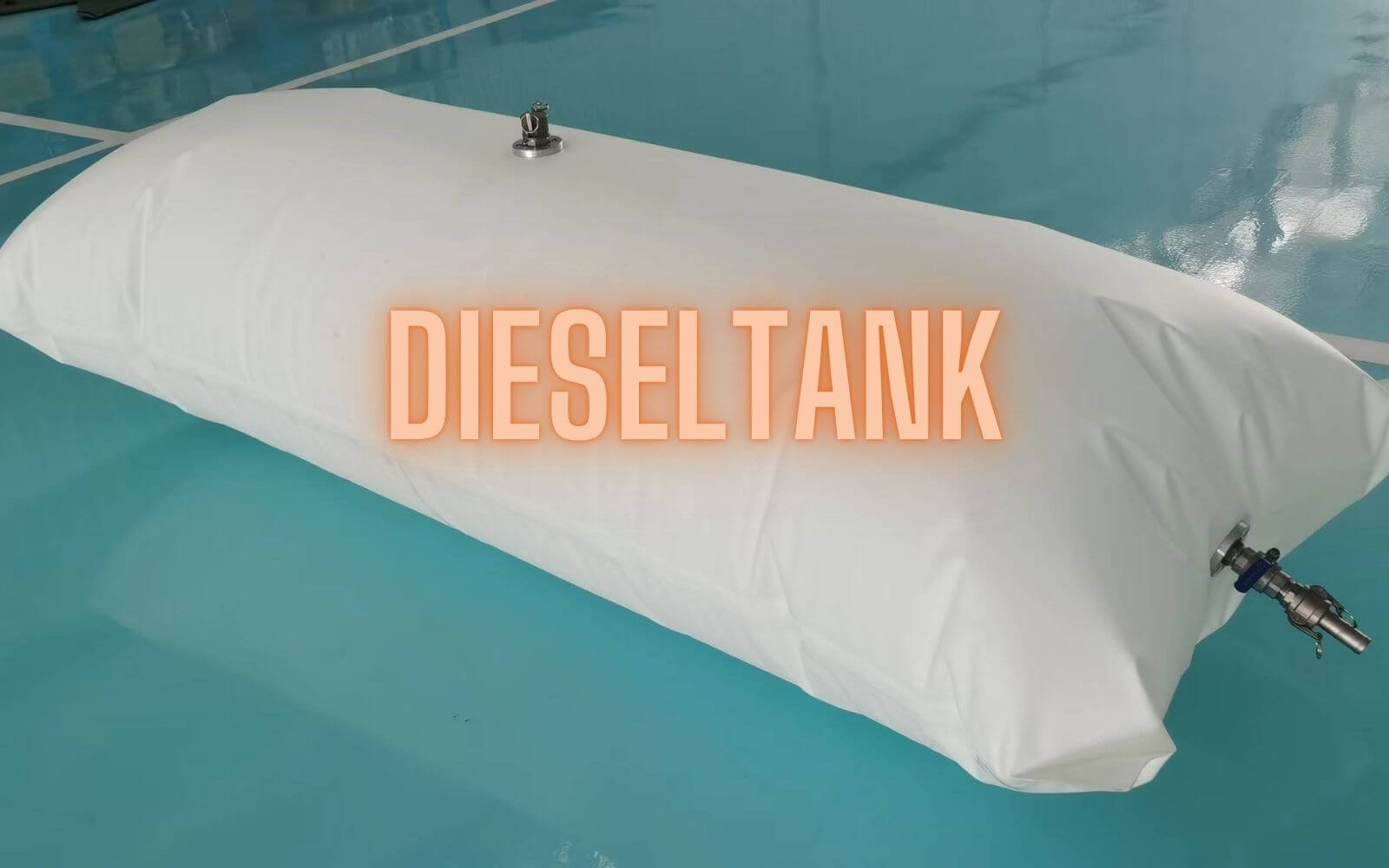DIESEL TANK
Fuel management in remote locations has always been a challenging task. The logistical hurdles, environmental concerns, and high costs associated with transporting and storing diesel in these areas often strain resources and budgets. However, flexible diesel tanks are changing the situation, offering a revolutionary solution that makes fuel storage and transportation more accessible, efficient, and cost-effective.
Remote sites, such as mining operations, construction projects, and rural agricultural areas, often rely heavily on diesel to power machinery, vehicles, generators, and sometimes also need the fuels as heat-energy supply.
Traditional fuel storage methods, like rigid steel tanks or drums, can be problematic in these locations. They fix on the size, difficult to transport, not easy to deploy and expensive labor cost and equipment expense to install. Additionally, maintaining these tanks in harsh environments can lead to frequent repairs and replacements, further increasing costs.
Flexible diesel tanks, also known as bladder fuel tanks or pillow fuel tanks, have emerged as an innovative alternative to traditional storage solutions.
Made from durable, high-strength materials, these tanks design to hold large volumes of diesel while being lightweight, can fold and put into small carton for packing and easy to transport. Their adaptability and versatility have made them an increasingly popular choice for remote and not easy to reach site fuel management.
Ease of Transportation and Installation
One of the most significant benefits of flexible diesel tanks is their portability. Unlike rigid tanks, which fix on the size and shape, require specialized equipment and transportation methods, flexible tanks can be folded, rolling up, and packing into a small carton for easy transport. This feature reduces shipping costs and simplifies the logistics of moving fuel storage solutions to remote locations.
Installation is also easy to handle. Deployment of the flexible fuel tank can be very fast, without the need for heavy machinery or extensive groundwork. This ease of installation of flexible tanks, not only saves time but also reducing the people works involved means decreasing the labor costs, making it a more cost-effective option for fuel storage operations.
Space Efficiency
Space is often limited in remote sites, especially in extreme conditions. Flixtank can produce the customized flexible diesel tanks to fit into tight or irregularly shaped spaces, making the most of available room, increasing the loading capacity and improving the safety as the shapes totally fits the space. Whether placed on flat terrain or uneven ground, these tanks conform to the site’s contours, maximizing storage capacity without the need for large, flat areas.
Cost-Effective Solution
Traditional fuel storage tanks can be expensive to purchase, install, and maintain. Flexible diesel tanks offer a more affordable alternative. The materials used in flexible tanks are generally less expensive than steel, and almost no need for infrastructure and routine inspection and water flowing clean and easy maintenance are alright further drives down costs. Additionally, the durability of flexible tanks means they have a longer lifespan, mostly over 10 years, providing long-term value.
Environmental Benefits
Remote sites often have strict environmental regulations to prevent fuel spills and contamination. Flexible diesel tanks design with these concerns in mind. Their robust construction and puncture-resistant materials minimize the risk of leaks, and flexible tanks can equip with secondary containment features to further avoid the leakage and protect the environment. Moreover, flexible tanks are easier to clean and maintain, reducing the likelihood of spills and environmental damage.
Scalability and Flexibility
As outdoor projects, the site may need change locations sometimes and change fuel consumption volume, so too can the fuel storage requirements. Flexible diesel tanks offer scalability that rigid tanks cannot match. Whether a site needs to increase its fuel storage capacity or relocate its tanks, flexible storage solutions can easily expand or move to accommodate new demands. This flexibility is particularly valuable in dynamic environments where project scopes can evolve rapidly.
Flexible diesel tanks have already proven their worth in a variety of remote site applications. In the mining industry, for example, these tanks provide a reliable fuel supply for equipment operating in isolated locations.
In disaster relief efforts, flexible tanks can rapidly deploy as fuel resources to areas with limited infrastructure. Even in remote farming operations, these tanks help ensure that critical machinery remains operational during peak seasons.
Flexible diesel tanks are revolutionizing remote site fuel management by addressing the unique challenges of these environments. Their portability, cost-effectiveness, and adaptability make them an ideal solution for a wide range of applications, from mining and construction to agriculture and disaster relief.
As more industries recognize the benefits of flexible fuel storage, these innovative tanks are set to become a standard in remote site operations, driving efficiency and sustainability in even the most challenging locations.








